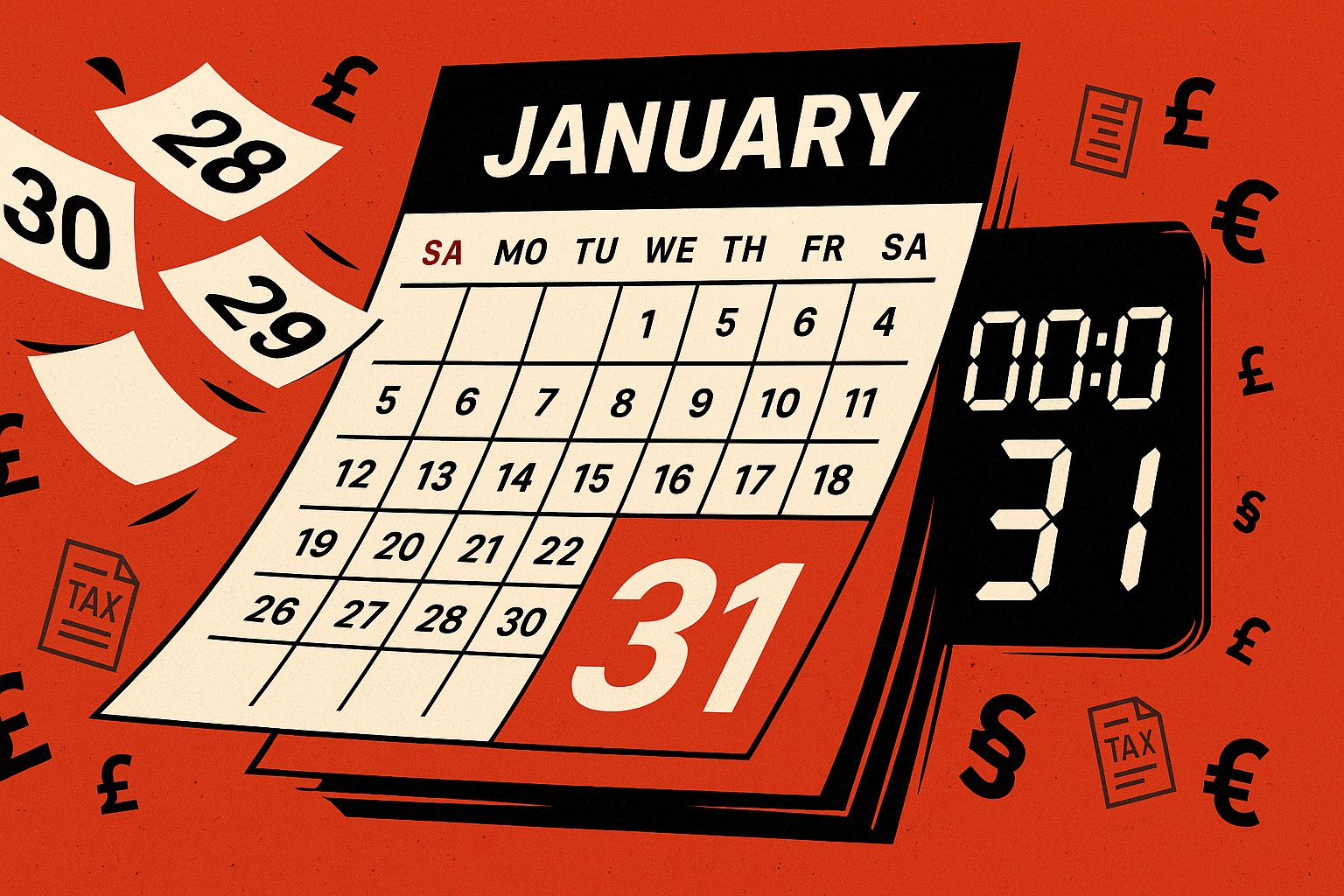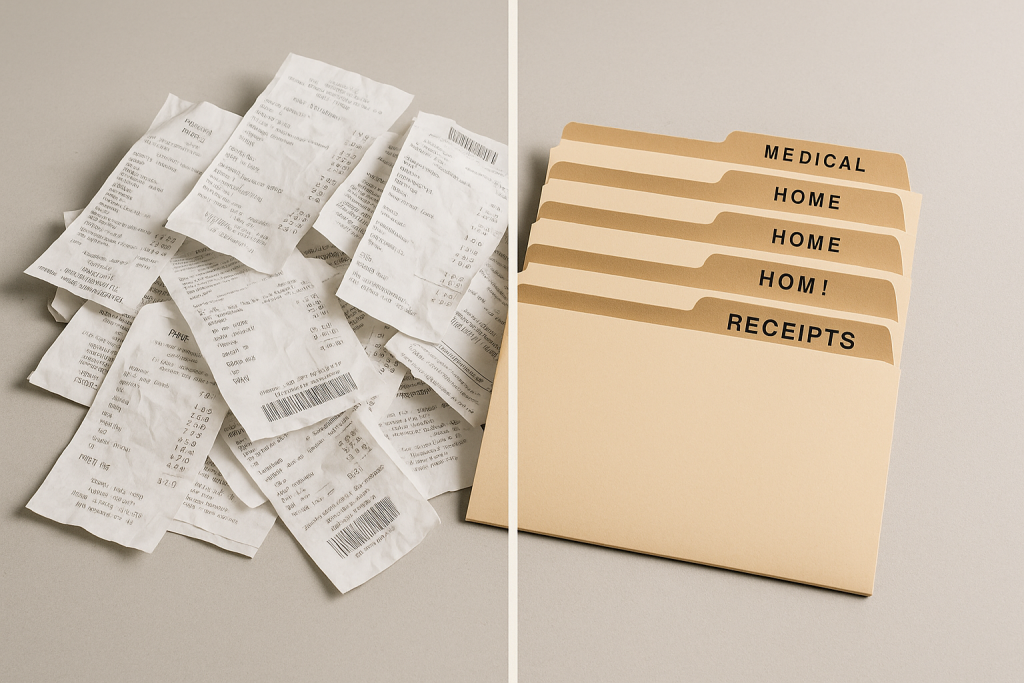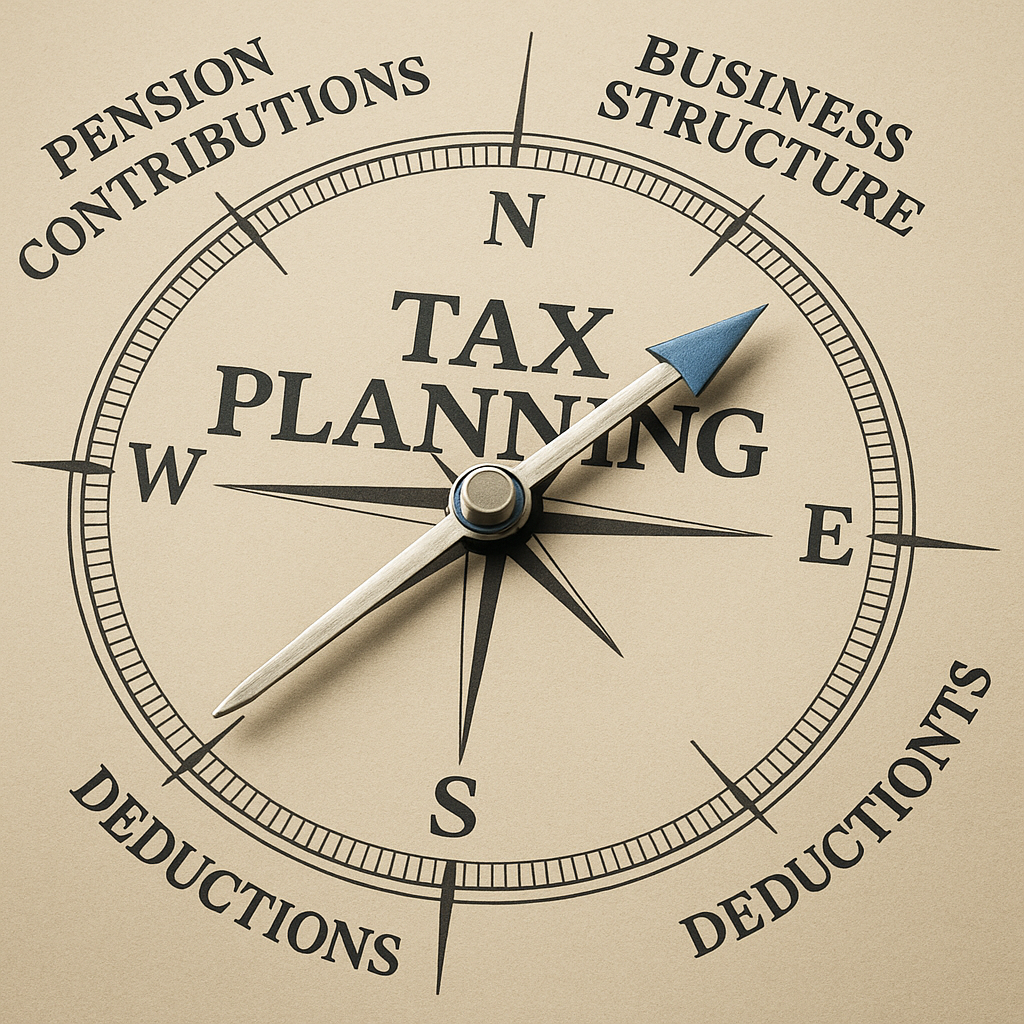
Let’s face it – self assessment return don’t exactly spark joy. They lurk in the back of your mind for months, then suddenly it’s January and you’re frantically hunting for receipts you swore you kept somewhere. I’ve been there, done that, and finally learned how to make the process less painful.
Self assessment returns aren’t just bureaucratic torture devices; they’re actually your opportunity to claim everything you’re entitled to. Miss the deadline, and you’re looking at penalties that could have bought you a decent holiday. Get it right, and you might even receive a nice little rebate to celebrate with.
When Did This Become My Problem?
You’ve probably landed here because you’re suddenly responsible for your own tax affairs. Welcome to the club! You’ll need to complete a self assessment return if:
- You’re self-employed and earned more than £1,000
- Your property income exceeded £1,000
- You earned over £100,000 in a tax year
- You have foreign income to declare
- You need to claim tax relief HMRC doesn’t handle automatically
- You’re a company director (yes, even if you didn’t take dividends)
- You have capital gains to declare
Sometimes people fall through the cracks – maybe you’ve been employed but had a side hustle, or inherited an income-generating asset. HMRC expects you to know when you need to register, which seems a bit like expecting you to know all the lyrics to a song you’ve never heard.
Helpful Links:
- Check if you need to send a Self Assessment tax return: GOV.UK – Check how to register for Self Assessment
Registration: First Date with HMRC
Before you can even start a self assessment return, you need to register with HMRC. It’s like creating a dating profile, except instead of finding love, you’re signing up to give away money each year. Ask Accountants UK Ltd can help with this process.
The registration process varies depending on whether you’re:
- Self-employed/a sole trader
- Not self-employed but need to file a return
- Registering as a partner or partnership
For most people becoming self-employed, you’ll need to register for both self assessment AND Class 2 National Insurance contributions. Miss this step and you could face problems with your state pension down the line – not something you want to discover at 65.
The deadline for registration is 5th October after the end of the tax year in which you started needing to file. So if you became self-employed in June 2024, you’d need to register by 5th October 2025.
After registering, HMRC sends you a Unique Taxpayer Reference (UTR) by post. Guard this 10-digit number with your life – you’ll need it forever, and replacing it is about as fun as getting a root canal.
Gathering Your Financial Ducks
Before diving into the actual return, gather everything you’ll need:
- P60s (if you’re also employed)
- P45s (if you changed jobs)
- Income records (invoices, bank statements)
- Expense receipts (organized by category, please)
- Pension statements (relevant for personal tax planning)
- Interest statements from savings
- Investment income details (see our personal tax planning services)
- Property income and expense records
- Student loan statements
- Charitable donations (Gift Aid)
I once spent three hours hunting for a misplaced dividend statement that was worth £12.76. Trust me, creating a “tax stuff” folder in January saves hours of frustration the following January.
The Forms: HMRC’s Paperwork Wonderland
The self assessment return consists of different sections. The main return (SA100) is for everyone, but you’ll need supplementary pages depending on your situation:
| Section | Who Needs It | Common Pitfalls |
|---|---|---|
| SA100 | Everyone | Forgetting to sign/date if filing by paper |
| SA101 (Additional Info) | Those with non-standard deductions | Missing out on allowable expenses |
| SA102 (Employment) | Anyone with PAYE income | Not including all employers from the tax year |
| SA103 (Self-employment) | Self-employed individuals | Using cash instead of accrual accounting when required |
| SA105 (Property Income) | Landlords | Claiming disallowed expenses like property improvements |
| SA106 (Foreign Income) | Those with overseas earnings | Not declaring worldwide income |
| SA108 (Capital Gains) | If you’ve sold assets at a profit | Incorrect calculation of acquisition costs |
| SA109 (Residence) | Non-UK residents or split-year cases | Misunderstanding residency status |
Filing Options: Paper vs Digital Showdown
You can file your return in two ways:
- Paper filing: Must be completed by 31st October following the tax year. Like writing letters in the age of email – quaint but impractical. HMRC doesn’t send acknowledgments for paper returns, so you’re left wondering if it arrived safely.
- Online filing: Deadline is 31st January following the tax year. You get an immediate confirmation, and the software does calculations for you. Plus, you can save your progress and come back later when you’ve calmed down.
For the current 2024/25 tax year, your key dates are:
- Register for Self Assessment by 5th October 2025
- Submit paper returns by 31st October 2025
- Submit online returns by 31st January 2026
- Pay your tax bill by 31st January 2026
- Make any payment on account by 31st July 2026
The online system can be temperamental – I’ve seen it crash more times than I care to remember, usually around 9pm on January 31st when everyone else is also panicking. Start early and avoid the digital traffic jam. Last January, a client called me in tears at 11:30pm because the system froze just as she was submitting. We managed to get it working again with 10 minutes to spare, but her blood pressure probably hasn’t recovered yet.
Common Mistakes That’ll Come Back to Bite You
Having helped countless clients with their returns at Ask Accountant, I’ve seen some spectacular blunders:
- Not declaring all income sources (HMRC often knows about them anyway)
- Claiming personal expenses as business costs (your weekly takeaways aren’t “research”)
- Forgetting to claim capital allowances (leaving money on the table)
- Missing deadlines and racking up penalties
- Keeping records that would confuse even a forensic accountant
- Claiming for things that make HMRC’s eyebrows raise suspiciously high
One client tried to claim £200 for “work clothes” that turned out to be a designer suit for his daughter’s wedding. Creative, but definitely not allowable!
When HMRC Gets Cranky: Penalties and Interest
Miss the deadline or pay late, and HMRC’s punishment is swift and expensive:
- Late filing penalty: £100 immediately after the deadline
- 3 months late: £10 daily penalties (up to £900)
- 6 months late: Additional £300 or 5% of tax due (whichever is higher)
- 12 months late: Another £300 or 5% of tax due
And for late payment:
- 30 days late: 5% of unpaid tax
- 6 months late: Another 5%
- 12 months late: Yet another 5%
Plus, interest accrues on both the unpaid tax and the penalties.
I had a client who ignored his tax return for three years. By the time he came to me, his original £8,000 tax bill had ballooned to nearly £15,000 with penalties and interest. He could have taken a luxury cruise with that money instead of handing it to HMRC. An HMRC investigation can be stressful and costly if not handled correctly.
If you’ve got a reasonable excuse – serious illness, bereavement, or system failures – HMRC might show mercy. But “I was too busy” or “I didn’t understand the process” won’t cut it. They’ve heard every excuse in the book.
The Calculation: How Much Will This Pain Cost?
Once you’ve entered all your information, you’ll see your tax calculation. This shows:
- Total income from all sources
- Personal allowances and reliefs
- Taxable income
- Tax due at different bands
- National Insurance contributions
- Student loan repayments
- Any payments on account for next year
That last one catches people out. If your tax bill is over £1,000, HMRC usually wants you to make payments on account (advance payments) for next year – 50% by January 31st and 50% by July 31st. This can feel like paying twice in your first year of self assessment.
Helpful Links:
- Payments on Account: GOV.UK – Payments on account
Payment Options: Parting With Your Hard-Earned Cash
You can pay your tax bill through:
- Bank transfer
- Debit card online
- Direct Debit
- Check (if you enjoy living dangerously with postal deadlines)
- At your bank or building society
- Budget payment plan throughout the year
(Ask Accountants UK Ltd can advise on the best payment options for you.)
Credit card payments used to be an option but HMRC stopped accepting them in 2018 – presumably tired of people getting air miles from their tax bills.
Online banking is quickest, but allow 3-5 working days for the payment to reach HMRC. I’ve witnessed too many people make payments on January 31st only to be hit with late payment penalties because the money didn’t clear in time.
When Things Go Wrong: Amendments and Appeals
Made a mistake? Don’t panic – you can amend your return within 12 months of the filing deadline. So for the 2024/25 tax year, you’d have until January 31, 2027 to make changes. (For help with amendments, see our self-assessment services).
If you discover errors after this period, you’ll need to write to HMRC with a disclosure. They can go back up to 4 years for honest errors, 6 years for careless mistakes, and 20 years if they think you’ve been deliberately naughty.
Received a tax calculation you don’t agree with? You generally have 30 days to appeal. Put it in writing, explain why you think HMRC is wrong, and provide evidence. Then prepare for potentially months of correspondence – HMRC moves at its own special pace. (Ask Accountants UK Ltd can help with HMRC investigations and appeals).
Record-Keeping: The Unsexy But Critical Bit
HMRC requires you to keep records for at least 5 years after the January 31st submission deadline of the relevant tax year. For 2024/25, that means until January 31, 2031. Yes, really.
What to keep:
- Invoices (issued and received)
- Bank statements
- Expense receipts
- Dividend vouchers
- Interest certificates
- Rental income documents
- Mileage logs
- Asset purchase and sale information
Cloud accounting software can be a lifesaver here. It gives you somewhere to dump all this information throughout the year rather than recreating your financial history like some kind of tax archaeologist. (Ask Accountants UK Ltd also offers bookkeeping services).

Getting Help: When to Call in the Professionals
While many people can handle straightforward returns themselves, consider professional help if:
- Your affairs are complex (multiple income streams, international elements)
- You’re new to self-employment
- You’ve had significant life changes (inheritance, property sale, divorce)
- You’re claiming unusual expenses or reliefs
- You’re behind on filing and facing penalties
- Numbers make you break out in hives
At Ask Accountant, we’ve seen clients save thousands by having proper tax planning in place. One client was about to file his own return until we spotted he hadn’t claimed capital allowances on £45,000 of equipment. That oversight would have cost him over £9,000 in unnecessary tax!
Professional fees are typically tax-deductible expenses themselves, so the service can partly pay for itself. When you’re looking at the cost of an accountant, consider what your own time is worth – and how much you’d pay to avoid the stress of potentially getting it wrong. Our accountancy fees are competitive.
What Actually Counts as a Business Expense?
One area where I see clients consistently confused is allowable expenses. Here’s a practical guide to what you can and can’t claim (for more, see our resources or blog):
Generally allowable:
- Office costs: Stationery, phone bills, internet (apportioned for business use)
- Travel: Business mileage (45p per mile for first 10,000 miles, 25p thereafter), train tickets, accommodation for business trips
- Staff costs: Salaries, subcontractor fees
- Clothing: Uniforms, protective gear (but not your everyday wardrobe)
- Premises: Rent, utilities, insurance
- Marketing: Website, advertising, business cards
- Training: Courses to update existing skills (not learning entirely new skills)
- Subscriptions: Professional memberships, relevant publications
- Financial costs: Bank charges, insurance, accountancy fees
Usually not allowable:
- Personal clothing (even if you only wear it for work)
- Commuting between home and your regular workplace
- Entertainment (client lunches are generally disallowed)
- Parking fines and penalties (even if incurred during business)
- The entirety of dual-purpose items (you need to apportion)
One freelance photographer client was thrilled when I showed him he could claim a percentage of his home electricity bill due to editing work. He’d been paying over £1,200 extra in tax each year by missing legitimate expenses.
Tax Law Changes Worth Knowing About
The tax landscape shifts every year. For 2024/25, be aware of:
- The VAT registration threshold increased to £90,000 (deregistration threshold now £88,000) – (check our VAT services for more).
- Trading allowance and property allowance remain at £1,000
- Personal allowance still frozen at £12,570 until April 2028
- Dividend allowance reduced to £500 (down from £1,000 last year)
- Capital Gains Tax annual exempt amount cut to £3,000 for individuals
- The much-discussed IR35 off-payroll working rules continue to affect contractors
If you’ve been operating the same way for years, these changes might mean your tax strategy needs refreshing. At Ask Accountant, we’ve helped many clients restructure their income patterns to adapt to these new realities.
Helpful Links:
- VAT Registration: GOV.UK – VAT registration
- VAT (General Information): GOV.UK – VAT
- Income Tax Allowances: GOV.UK – Income Tax allowances and amounts (Covers personal allowance, trading/property allowance)
- Dividend Allowance: GOV.UK – Tax on dividends
- Capital Gains Tax Annual Exempt Amount: GOV.UK – Capital Gains Tax: what you pay it on, rates and allowances
- IR35 (Off-payroll working): GOV.UK – Understanding off-payroll working (IR35)
Beyond Filing: Tax Planning For Next Year
Filing your self assessment is just one piece of the puzzle. Smart taxpayers use the information to plan for the future. Consider our tax planning services:
- Could restructuring your business save tax? (Business Advice)
- Are you making the most of pension contributions?
- Should you change how you take income from your business?
- Are there investments that could provide tax-efficient returns?
- Could your spouse or partner’s tax position be utilized better?
January shouldn’t be the only time you think about tax planning. Regular reviews throughout the year can help identify savings opportunities before it’s too late to act on them.

Helpful Links:
- Tax Planning (General Guidance – External): MoneyHelper – Tax planning
- Business Advice (General Government Resource – External): GOV.UK – Business support
Final Thoughts: Peace of Mind Has Value Too
Self assessment or self assessment return doesn’t have to be the annual nightmare many make it out to be. With preparation, understanding, and maybe a bit of professional guidance, you can navigate the process confidently.
Remember – it’s not just about compliance; it’s about ensuring you’re not paying a penny more than you legally need to. And that’s something worth getting right.
If you’re still staring at the screen feeling overwhelmed, we at Ask Accountant offer proactive tax advisory solutions that go beyond just filling forms. Sometimes a 30-minute conversation about your specific situation can save both money and headaches.







